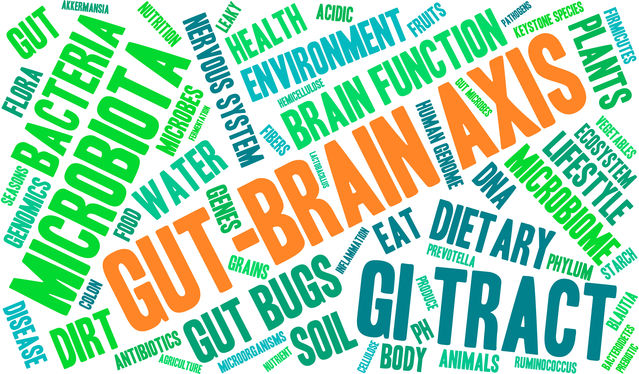Stress
Tranquility Promotes Healthier Microbiome and Gut-Brain Axis
Lower levels of stress hormones are correlated with healthier microbiomes.
Posted January 7, 2016

Since 2013, the US National Institute of Mental Health (NIMH) has dedicated millions of dollars to fund seven different pilot studies that examine what scientists call the “Microbiome"–Gut–Brain Axis.”
Microbiomes are communities of microorganisms that are a combination of both beneficial and potentially harmful bacteria. Lifestyle factors such as exercise and managing stress appear to dramatically affect the diversity and quantity of healthy microbiome in the intestines.
The human gut harbors over 100 trillion microorganisms—this is approximately 10 times the number of cells in the human body. Microbes begin residing within human intestines shortly after birth. These microbiome are vital to the development of the immune system and various neural functions.
Lifestyle Choices that Reduce Stress May Improve the "Gut-Brain Axis"
Evidence is mounting that altering the diversity of microorganisms in the gut is affected by the environment in ways that are often in the locus of the host's control. Lifestyle choices that improve psychological states of mind appear to be part of a feedback loop that also improves the health of microbiome communities in the "gut-brain axis."
Recently, I wrote a Psychology Today blog post, "Exercise Alters Gut Microbes That Promote Brain Health," based on a December 2015 study which found that early-life exercise alters microbiome that optimize brain health and metabolism.
A January 2016 meta-analysis reported that psychotherapy can dramatically improve the health of someone's "gut-brain axis." I wrote about these findings in a Psychology Today blog post, "Psychotherapy Can Dramatically Improve Your 'Gut-Brain Axis'."

Yesterday, another animal study on the "gut-brain axis" reported that low levels of stress hormones are associated with healthier microbiomes. The January 2016 study, "Stress and the Microbiome: Linking Glucocorticoids to Bacterial Community Dynamics in Wild Red Squirrels," was published in the journal Biology Letters.
For the recent study on the link between stress and microbiome, researchers from the University of Guelph, in Ontario, Canada tested squirrel microbiomes and analyzed the animals' stress hormones. Microbiomes were found to be more diverse in squirrels with lower stress hormones.
According to the researchers, bacterial diversity within animals and humans is emerging as an essential component of well-being. The greater the stress levels in the squirrels, the less bacterial diversity they had, which can be an indicator of poor health.
The researchers found that red squirrels living in a low-stress environments harbor healthier communities of microorganisms. The researchers believe these results might hold implications for human health.
Conclusion: Can Mindfulness and Meditation Improve Microbiomes by Reducing Stress?
More human studies on the "gut-brain axis" are needed before we draw any firm conclusions on the correlation and causation between healthier microbiomes and lower stress levels.
We do know from thousands of mind-body studies that reducing stress through daily practices such as regular exercise and mindfulness meditation improves our psychological and physical well-being. Also, each of us knows from first-hand experience that nervousness and stress give us 'butterflies' and can literally make you sick to your stomach.
Hopefully, the new research on microbiomes and stress hormones will inspire you to be more proactive about reducing your stress levels. Healthier microbiomes, and an improved "gut-brain axis," can serve as daily motivators to practice mindfulness and meditation.
To read more on how-to practice mindfulness meditation check out my previous Psychology Today blog posts:
- "Mindfulness Made Simple"
- "10 Ways Mindfulness and Meditation Promote Well-Being"
- "Mindfulness: The Power of 'Thinking About Your Thinking'"
- "The Neurobiology of Aggressive and Antisocial Behavior"
- "Let's Not Get Panicky"
- "How Does Meditation Reduce Anxiety at a Neural Level?"
- "The Neuroscience of Savoring Positive Emotions"
- "Cortisol: Why "The Stress Hormone" Is Public Enemy No. 1"
- "The Neurobiology of Grace Under Pressure"
- "'Loving Thy Neighbor As Thyself' Makes Us Healthy and Happy"
- "5 Neuroscience Based Ways to Clear Your Mind"
- "How Does the Vagus Nerve Convey Gut Instincts to the Brain?"
© 2016 Christopher Bergland. All rights reserved.
Follow me on Twitter @ckbergland for updates on The Athlete’s Way blog posts.
The Athlete’s Way ® is a registered trademark of Christopher Bergland.




